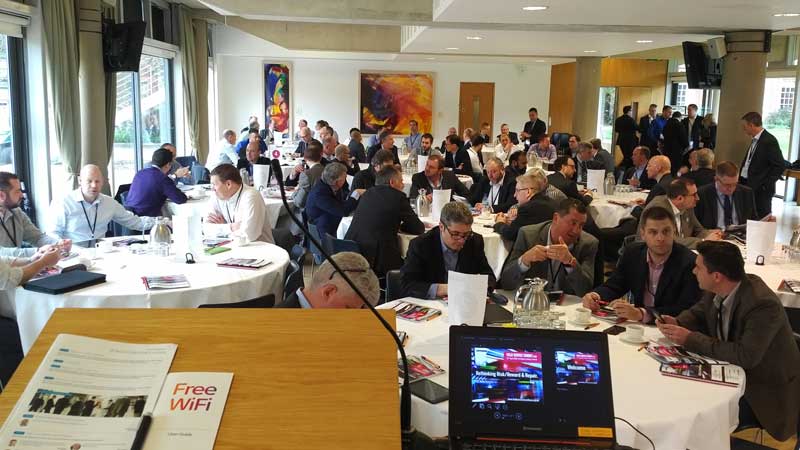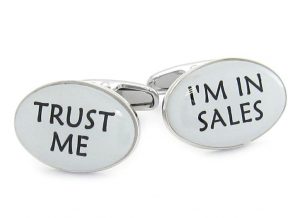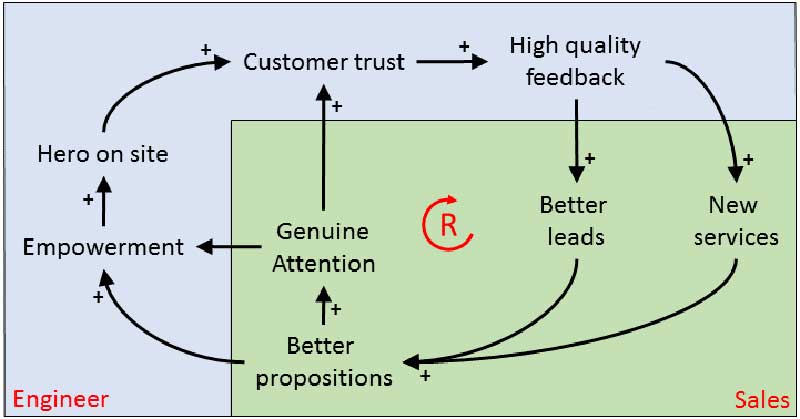The profit contribution of services compared to product profits has been the subject of many workshops over the past decade. Still, achieving a true shift in sales focus is a “Groundhog day” experience writes Coen Jeukens, Service Contract Manager, Bosch Security Systems
At the Copperberg April 2016 UK Field Service Summit service industry experts had their own groundhog day experience when discussing the “Demand generation” topic: what can the service manager do to go beyond the daily break-fix mode towards cross and upselling.
In five consecutive rounds the same discussion was reiterated varying the contributing industry experts. The individual rounds revolved around common convictions like:
- Should we dilute customer trust created by service engineers with potential alienation when stepping into a commercial role;
- Service is about helping customers, not selling to customers;
- Service and sales have different counter parts and decision making units;
- What is a meaningful incentive for service people to spot sales revenue and vice versa;
- Service and sales people have different DNA.

When looking at the discussions at an aggregate level, demand generation is possible when taking the following recommendations to heart:
- Use service engineer more as a brand ambassador than sales-lite;
- Empower service engineer to become a hero on site;
- Incentivise customer feedback instead of monetizing prospects/ leads;
- Feed customer feedback into marketing function;
- Creation of a “product” development function for services;
- As service manager, do not boast yourself as being a profit centre, but emphasise your contributing role in co-creation with sales.
The service engineer as brand ambassador
Comparing the amount of customer touch points and level of client trust, service engineers do have an edge over sales representatives. Though it sounds tempting to dual use service engineers as sales-lite, don’t do it.

Engineers gain their stature through technical competence and stamina to prolong the operational performance of a piece of equipment. As such the engineer is the perfect ambassador for brand loyalty.
Engineers gain their stature through technical competence and stamina to prolong the operational performance of a piece of equipment. As such the engineer is the perfect ambassador for brand loyalty.
In analogy with politics, the ambassador is an important player in a multi-faceted sales game: the ambassador provides intelligence, sales translates intel into leads and deals, while fencing the ambassador’s neutrality.
When contemplating to add a sales role to service engineers, do balance the risk and reward. Bear in mind that from a decision-making unit (DMU) perspective the service engineers’ counterpart is the end user and not the asset owner/ buyer. At best the end user will decide on OPEX matters.
When it comes to CAPEX the end users’ role diminishes to that of influencer.
Hero on site
Other reasons not to mingle sales and service objectives are the differences in DNA and aspirations. A sales representative strives to become trusted business advisor in order to generate long-term revenues.
A service engineer by default has a long-term relationship, a high level of trust and an advisory role. The service engineer wants to be the hero on site, he wants to be able to help.
As a hero on site and brand ambassador, the service engineer can use his stature to open doors and generate leads on two levels:
- OPEX leads: consumables and wear & tear components
- CAPEX leads: generate demand for new offerings
Empowerment is the key on both levels:
- OPEX leads: It is easy for a service engineer to convince an end- user to buy small maintenance related components. It makes him a hero if he can supply and install them right away. Any “delay” in conversion of lead into sales not only deteriorates the sales momentum, it also affects the hero status of the engineer.
- CAPEX leads: In his default mode, the service engineer will try to fix the existing equipment compared to suggesting a replacement or new buy. When hinting towards the latter, the service engineer puts his hero status at risk because the conversion of the lead into a sale falls outside his control. Nothing is more deadly for a hero than raising an expectation he can’t deliver.
Incentivise customer feedback
Frequent customer touch points and a high level of trust put your service engineer in a unique position to be the eyes and ears of your organisation. Capitalising on that position requires a multi-tired approach.
In analogy with the concepts of “big data”, capturing the sensory output of the service engineer is step one. The interpretation of that data into a lead is step two. The conversion into a sale is step three.
When the collection of data is driven by an intended use for sales, you may not only miss out on many subtleties of customer feedback, but also bias the observation with short-term gains.
Apart from asking your service engineer to collect specific data that is not in his DNA, you may also risk the neutrality of your ambassador/ hero.Ideally you may incentivise your service engineers to collect customer intelligence and feedback regardless of its conversion into sales.
Feed marketing
Information collected by service engineers is a valuable addition to the data input of your marketing function. Once in your marketing process it augments existing data and will result in better quality leads.
Better leads are more prone to be picked up by sales. Follow up by sales will make the service engineer feel taken seriously.
Not only will this boast his hero on site stature, he will also use his trust with the customer to make him decide positively on the sale.

Knowing service engineers have access to high quality and individual customer intelligence, using that information may also inspire you to rethink the workings of marketing.
Markets are less homogeneous than a decade ago. New technologies and the growing importance of customer experience will even further individualise customer behaviour.
Services development function
Acknowledging declining profit margins and fierce competition on products, transitioning to a more customer/ services centric earnings model is the logical way to go. The customer intelligence and feedback from your ambassadors and heroes will become vital in understanding his needs.
Where your products development department can tell you everything about your products and their roadmap, any service engineer can tell you how your customers use those products and how customers experience their use.
The combination of product and its use open up new sales opportunities. As use is the dominant factor, the appearance of the offering is customer specific.
Setting up and embedding a services development function in your organisation will enable you to add service revenue streams in an efficient manner.
Your service engineers will be the prime suppliers of input to your service development function. Similarly to proving input to your marketing function, the engineer and customer will feel appreciated when they receive feedback that their information is taken seriously.
Service as contributing centre
In achieving demand generation, adding sales roles and goals to the service department may sound as a logical thing to do. The profit contribution promise may even tempt you further.
Apart from the considerations in the previous paragraphs, beware that the creation of a secondary sales channel does invoke competition between the sales and service department. A competition that more likely will emphasise differences and prejudice than seeking the common ground.
Success lies in positioning your service department as a contributing centre. Let sales be in the lead. Use the traction of the sales department to get organisational and CEO buy in.
Make sales the internal hero by feeding them with high quality service engineer data. Empower your service engineer and make him the external hero.
As finishing touch, invest in a service marketing and services development function. Sales and service seek the commonality and acknowledge each other’s strength.
Published in Field Service News issue #13 (July/August 2016 and website
